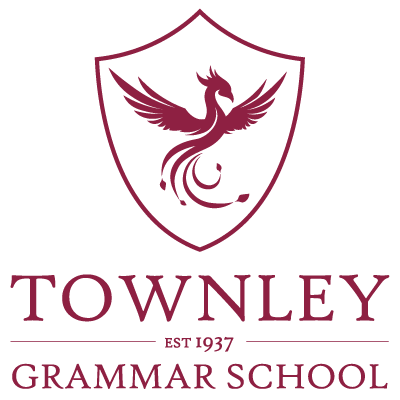Religious Studies
Religious Studies
 Religious Studies teaches about the main beliefs and practices of the different world religions and examines philosophical and ethical responses to issues. At Townley Grammar, by studying Religious Studies, individuals develop the ability to see another point of view and to understand what it means to be a member of a faith community. Students learn how a religious belief works and are able to identify the moral values which guide the lives of religious people. Religious Studies can help individuals to sort out their own ideas, values and commitments.
Religious Studies teaches about the main beliefs and practices of the different world religions and examines philosophical and ethical responses to issues. At Townley Grammar, by studying Religious Studies, individuals develop the ability to see another point of view and to understand what it means to be a member of a faith community. Students learn how a religious belief works and are able to identify the moral values which guide the lives of religious people. Religious Studies can help individuals to sort out their own ideas, values and commitments.
Students in Years 7 and 8 have three lessons a fortnight. In Year 9, students have two lessons a fortnight. In Years 10 and 11, Religious Studies is part of the ‘core’ and all pupils take full course Religious Studies GCSE, with two lessons a week and follow the Eduqas Syllabus. Religious Studies is one of the options for Advanced Level Studies in the Sixth Form and has two or three groups per year.
RELIGIOUS STUDIES LEARNING JOURNEY
Course Progression
Related Courses and Careers
The A Level course provides a very good introduction regarding preparing students moving onto any social sciences, arts or humanities degree-based course. Students can combine RS with science subjects and go on to study medicine, pharmacy and other science-related courses. The ability to provide a reasoned well written argument is a valuable skill to have when moving on to university courses.



